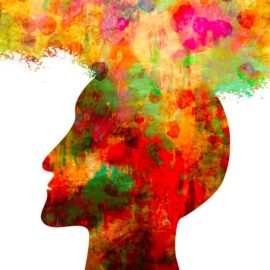

This article is an excerpt from the Shortform book guide to "Enlightenment Now" by Steven Pinker. Shortform has the world's best summaries and analyses of books you should be reading.
Like this article? Sign up for a free trial here.
What does it mean to be “anti-Enlightenment”? What kind of attitudes or paradigms fit into this category?
According to Steven Pinker, four forces are standing in the way of humanity’s progress: religion, anti-scientism, tribalism, and declinism. He believes that the world is on the right track but argues that these enemies of progress must be stopped if human advancement is to continue.
Continue reading to learn more about Pinker’s argument.
Enemies of Progress
Pinker provides statistics on such factors as health, wealth, equality, human rights, happiness, peace, and freedom, to show that all of those things have improved over time, all around the world. And he says the driving forces of this progress are reason, science, and humanism—values that are derived from the European Enlightenment.
To fully understand Enlightenment values and their historical impact, we should also understand the opposing positions. Pinker identifies four anti-Enlightenment positions, which he sees as stalling the progress of humanity. He argues that, in order to continue to improve the human condition, we must challenge these enemies of progress.
The anti-Enlightenment forces Pinker identifies are:
- Religion: Pinker sees religion as the most obvious of the anti-Enlightenment forces because belief in anything based on faith is inherently in conflict with belief based on reason and science. Because religious dogma often advocates putting “higher” goods above human interest—for example, embracing suffering in this life in order to appease a God and attain happiness in an afterlife—it’s inherently contradictory to humanism. Also, Pinker points out that organized religion typically translates to power imbalances and curtailing of freedoms, and he sees equality and freedom as essential to human flourishing.
- Anti-scientism: Often overlapping with religious approaches, anti-science stances claim that science is just another “narrative” or myth. Pinker points out that this belief creates distrust of scientists, which can have far-reaching negative consequences for society. For example, in response to the COVID-19 pandemic, there was widespread distrust of scientific experts, resulting in many preventable deaths. Pinker argues that continued scientific progress is essential for human progress, so anything that impedes science will necessarily stall human progress.
- Tribalism: Pinker defines tribalism as allegiance to a group and prioritizing that group above the individual. This can apply to actual tribes, but he explains that, in the modern world it’s most often seen as nationalism, and it can also manifest as religious, ethnic, racial, or class groups. He argues that the idea that the good of the group matters more than the good of individuals is essentially counter to humanism. He says groups don’t feel pain or suffering, or joy—people do. So, to make the world better for people, we need to focus there. An example might be the expectation for individuals to sacrifice their lives for their country or religion. He contends that religion and nationalism are major cornerstones of political conservatism, and they impede a progressive agenda.
- Declinism: Pinker defines declinism as the belief that the modern world is declining in stability and on the verge of collapse. He says that, while people have had such dystopian visions for thousands of years, one major form of declinism in the current world is the idea that technology will destroy us. He argues that this sentiment is becoming more widespread and cuts across political lines, with some believing our destruction will come in the form of threats like nuclear war or cyberterrorism and others believing it’ll be due to technology making us lazy, soulless, and miserable. These ideas impede progress, Pinker explains, because they create a culture of pessimism and anti-technology sentiment, contrary to his belief that technology is a major contributor to improving the human condition.
| Romanticism as an Anti-Enlightenment Movement One of the earlier historical foes of Enlightenment thinking was Romanticism, a philosophical and artistic movement that formed partly as a reaction to the hyperrationality of Enlightenment thought. From the late 18th through the mid-19th century, scholars and artists pushed back against Enlightenment values in favor of a more spiritual, emotional, and creative approach to the world. Romantics believed Enlightenment philosophy, through its emphasis on rationality, order, and objectivity, treated humanity as soulless and mechanistic. The Romantic movement encompassed some of the anti-Enlightenment forces Pinker mentions: Religion: Romanticism embraced a spiritual and transcendent approach to the world over a secular and rational one. Anti-scientism: Romanticism included skepticism of science. Romantics believed an objective scientific approach to the world would never give a full understanding of a world full of emotion, passion, and mystery. Tribalism: Since Romanticism placed a high value on the celebration of the individual, it might be difficult to argue that tribalism, in the sense of allegiance to a group, would be a Romantic notion. However, the theme of merging oneself with the divine is certainly a feature of Romantic literature. In this way, there is a theme of self-sacrifice in Romanticism. Declinism: One recurrent theme in Romantic literature, called the “Last Man” theme, is essentially an apocalyptic vision of the future, where only one person remains on Earth. This theme is employed in the writing of such notable Romantic authors as Lord Byron and Percy Shelley. |

———End of Preview———
Like what you just read? Read the rest of the world's best book summary and analysis of Steven Pinker's "Enlightenment Now" at Shortform.
Here's what you'll find in our full Enlightenment Now summary:
- How the world is actually getting better, not worse, over time
- Why people think the world is worse off than it is
- What Enlightenment values are and where they come from






